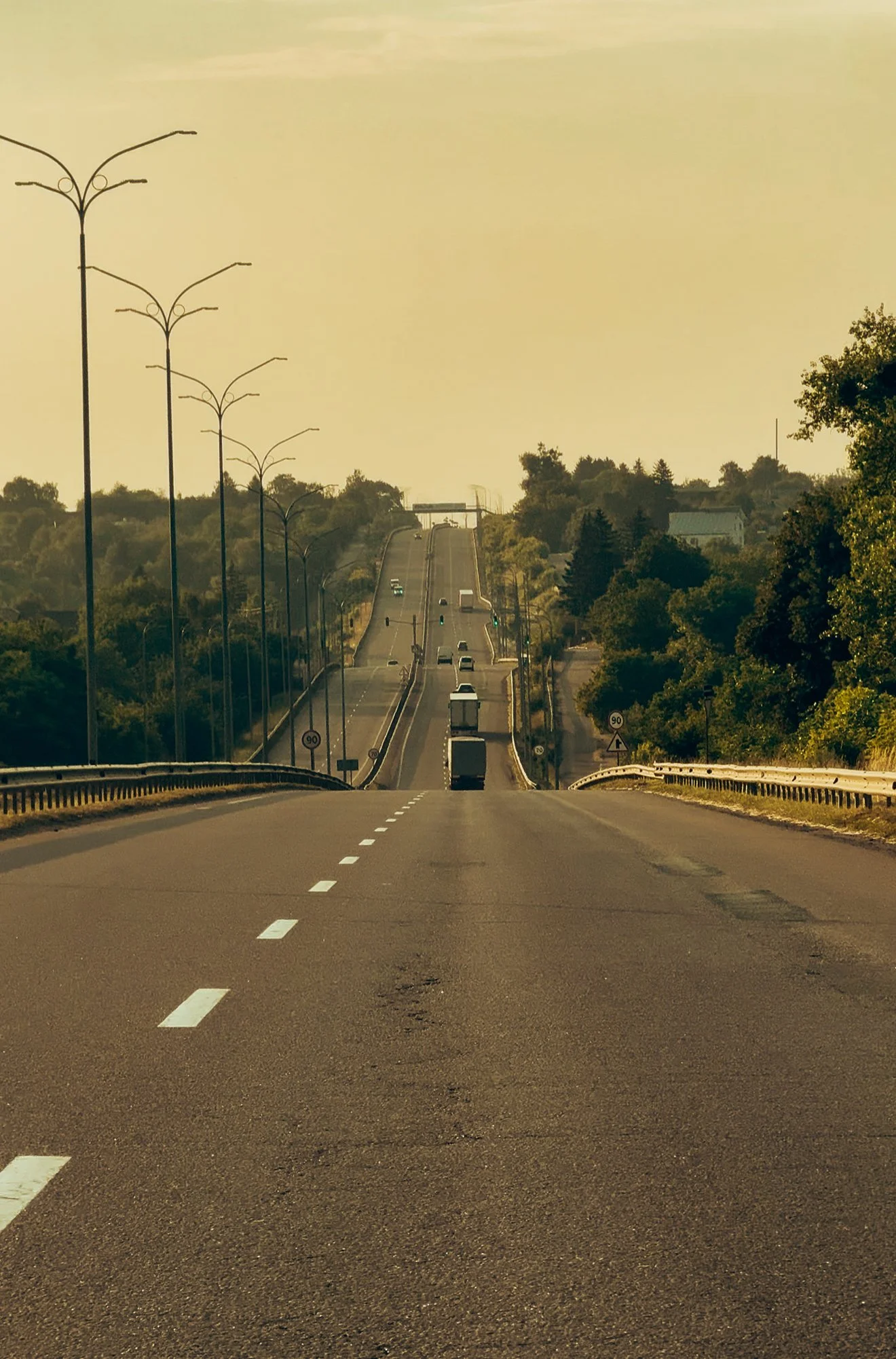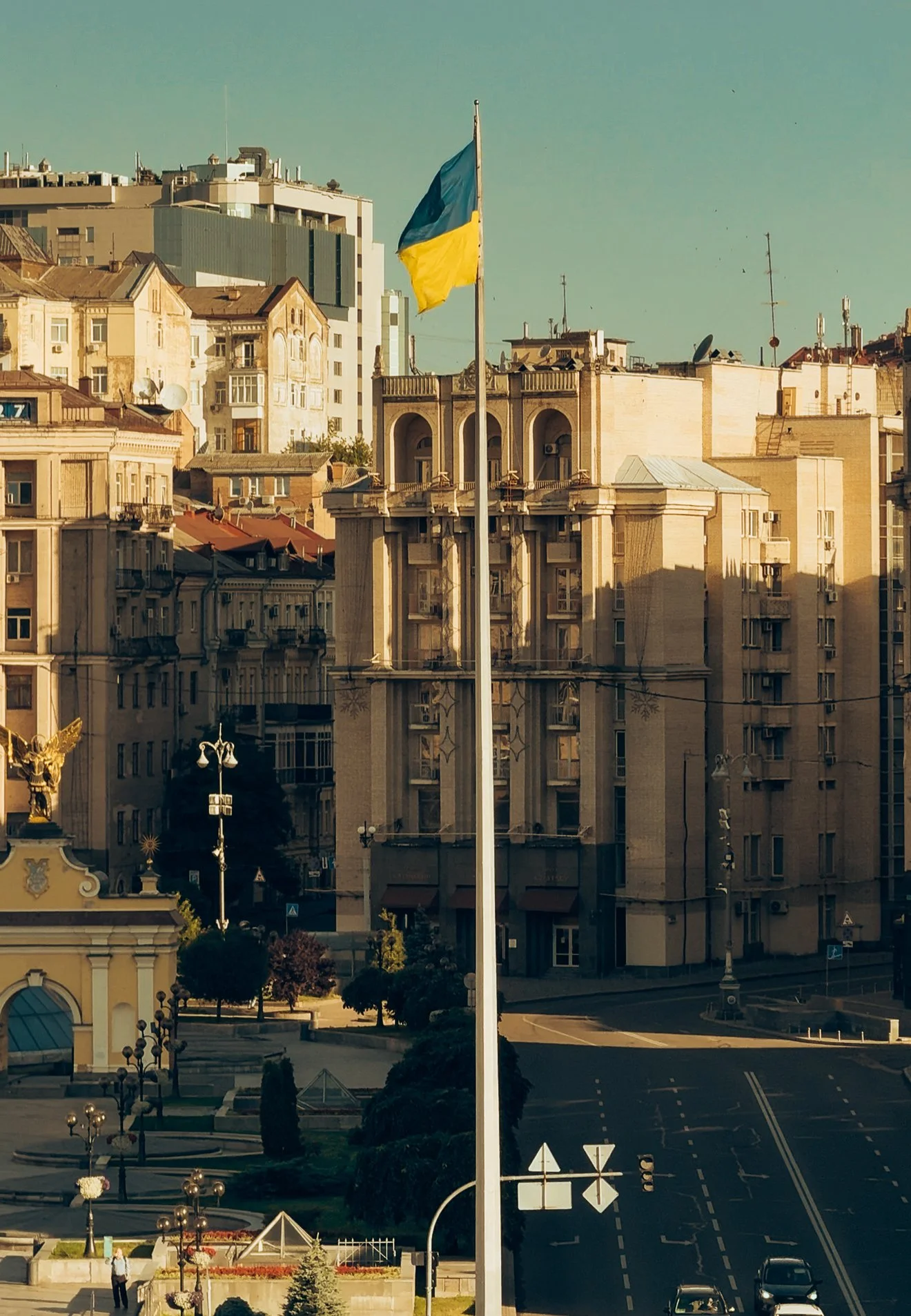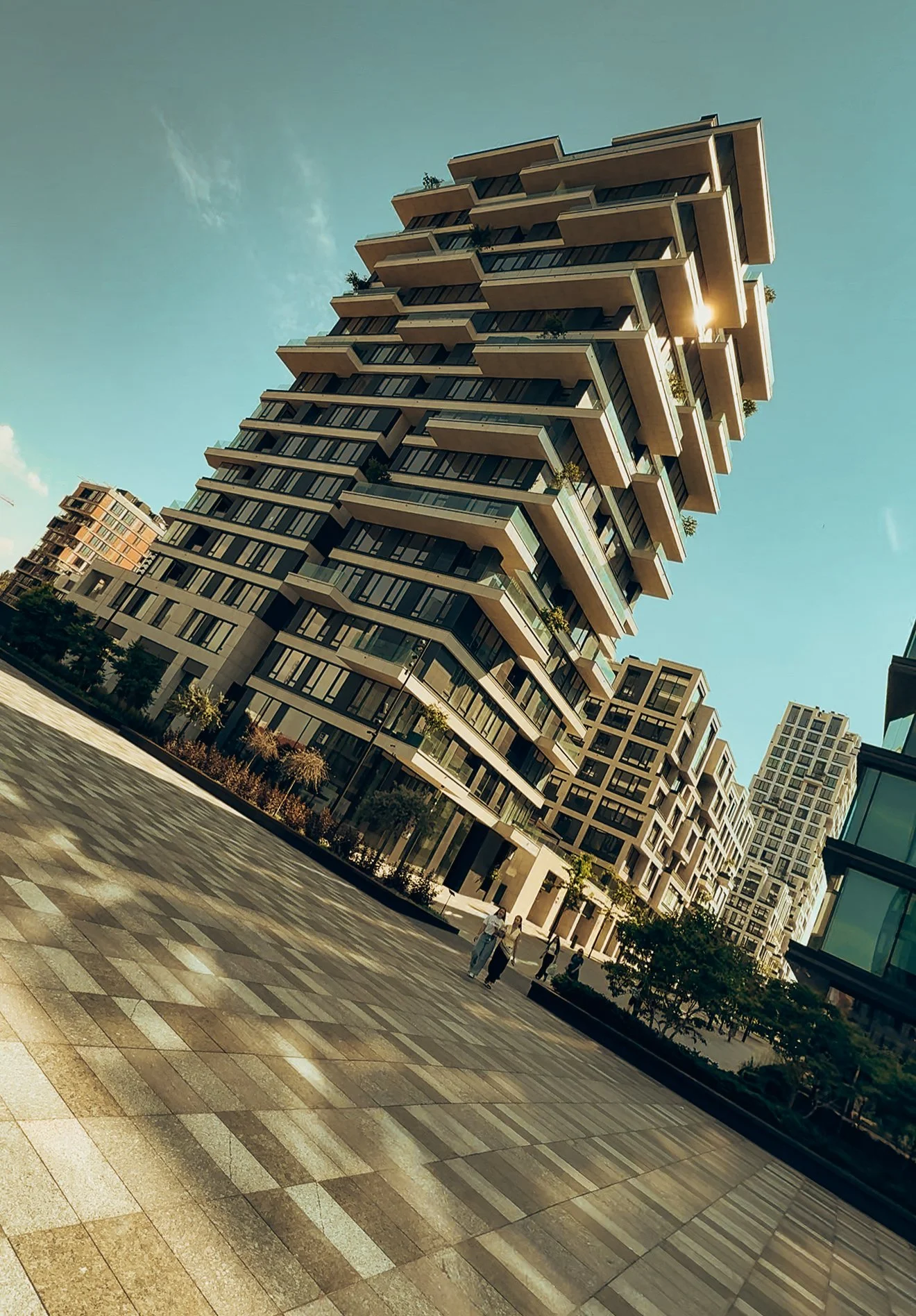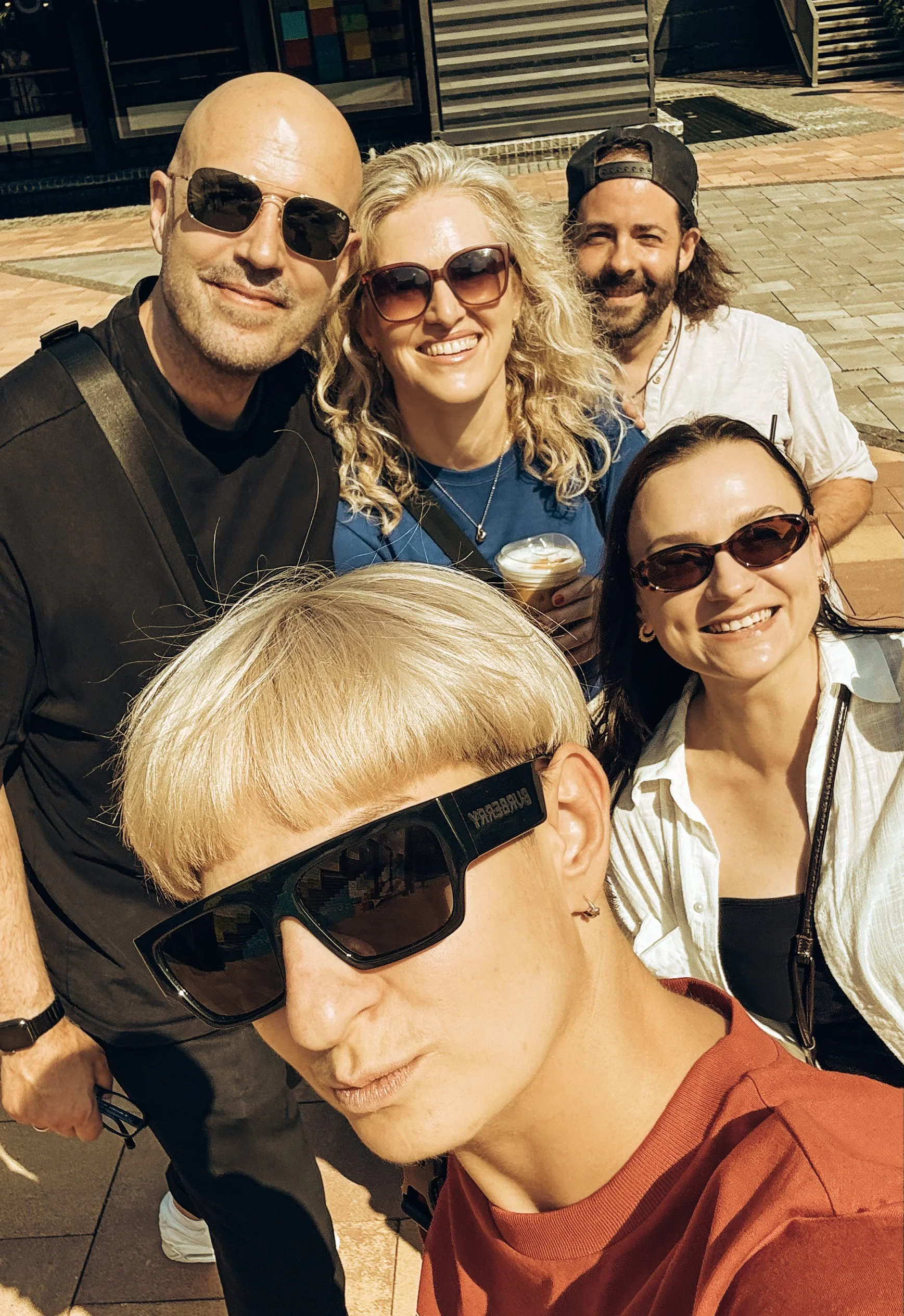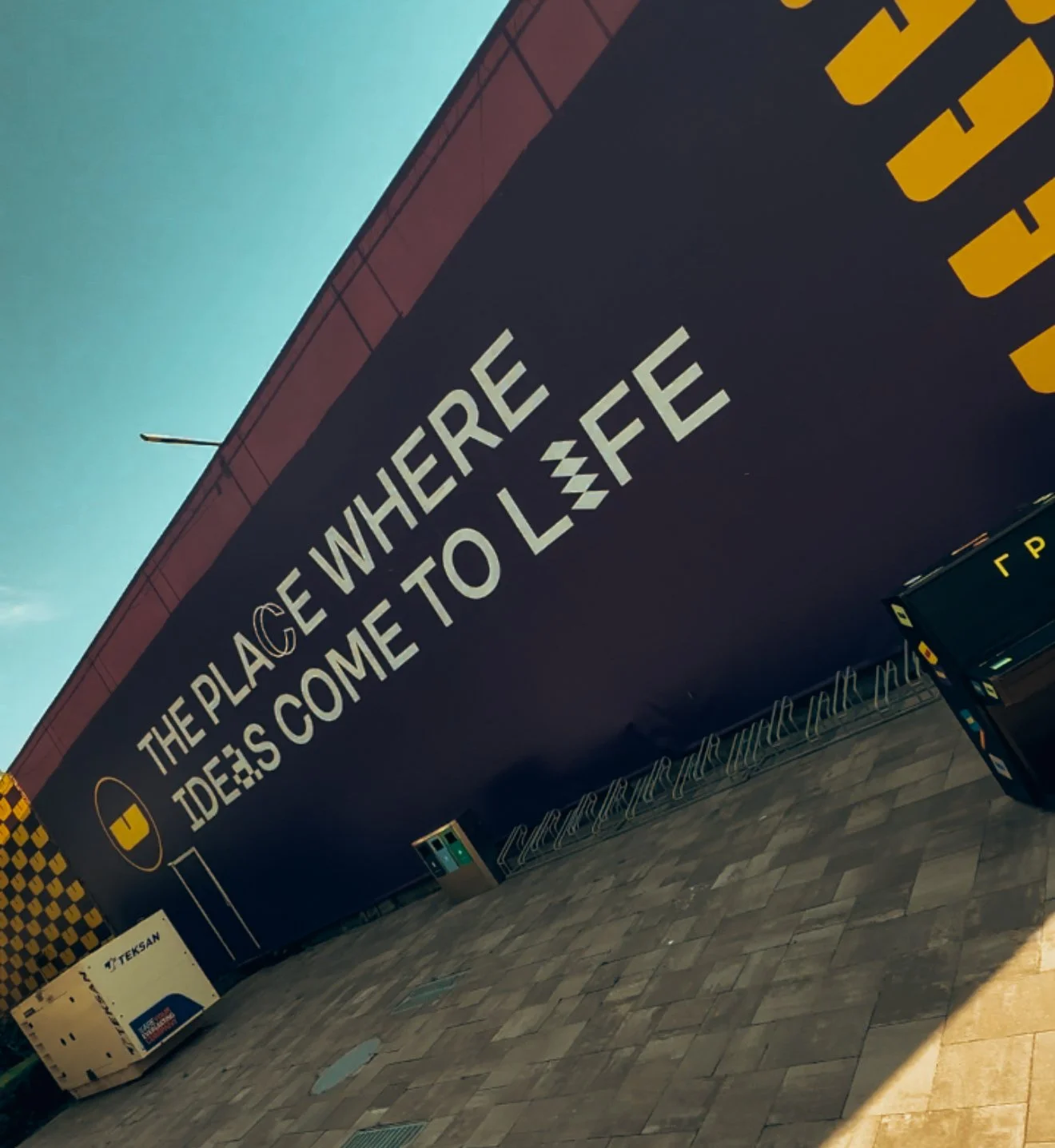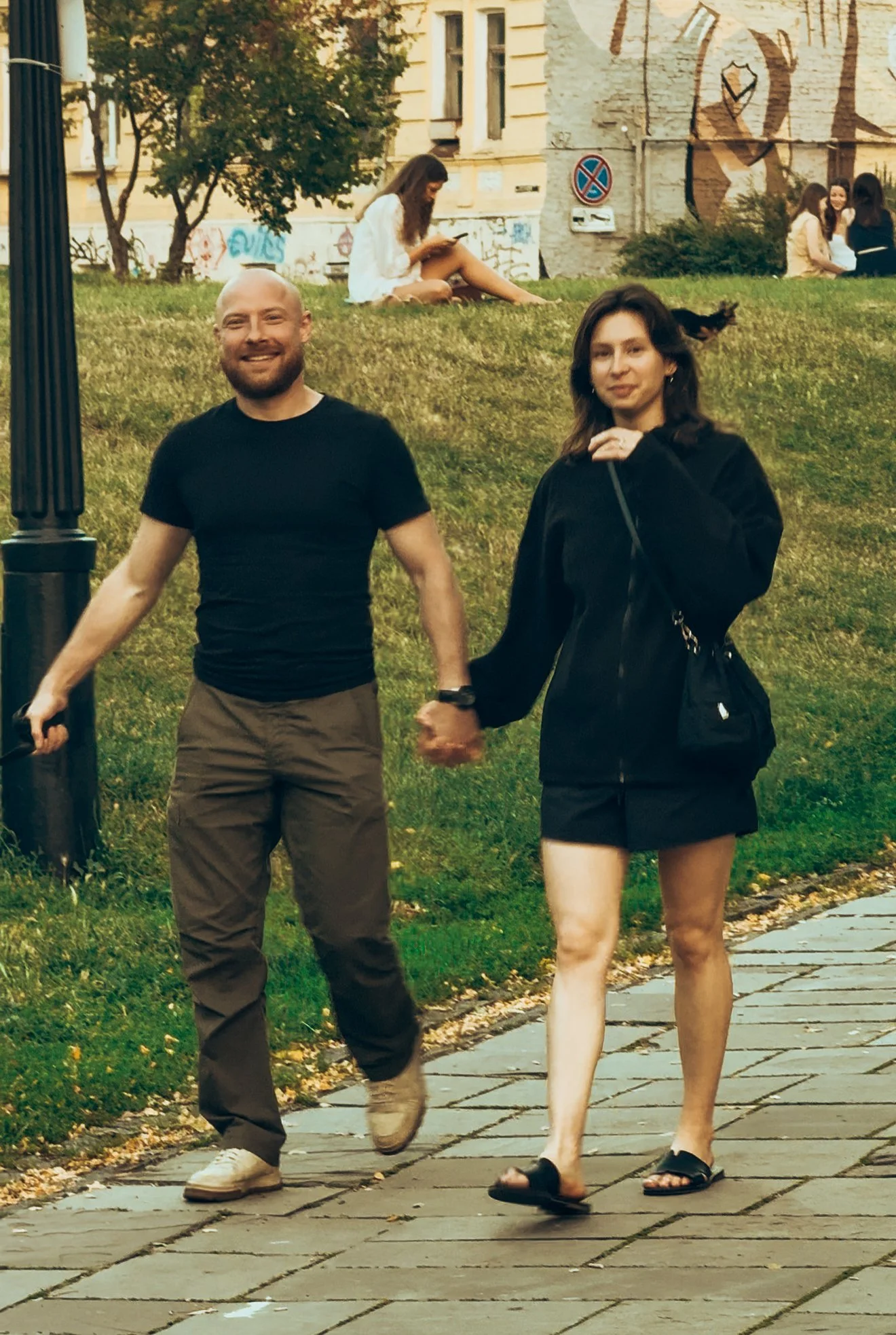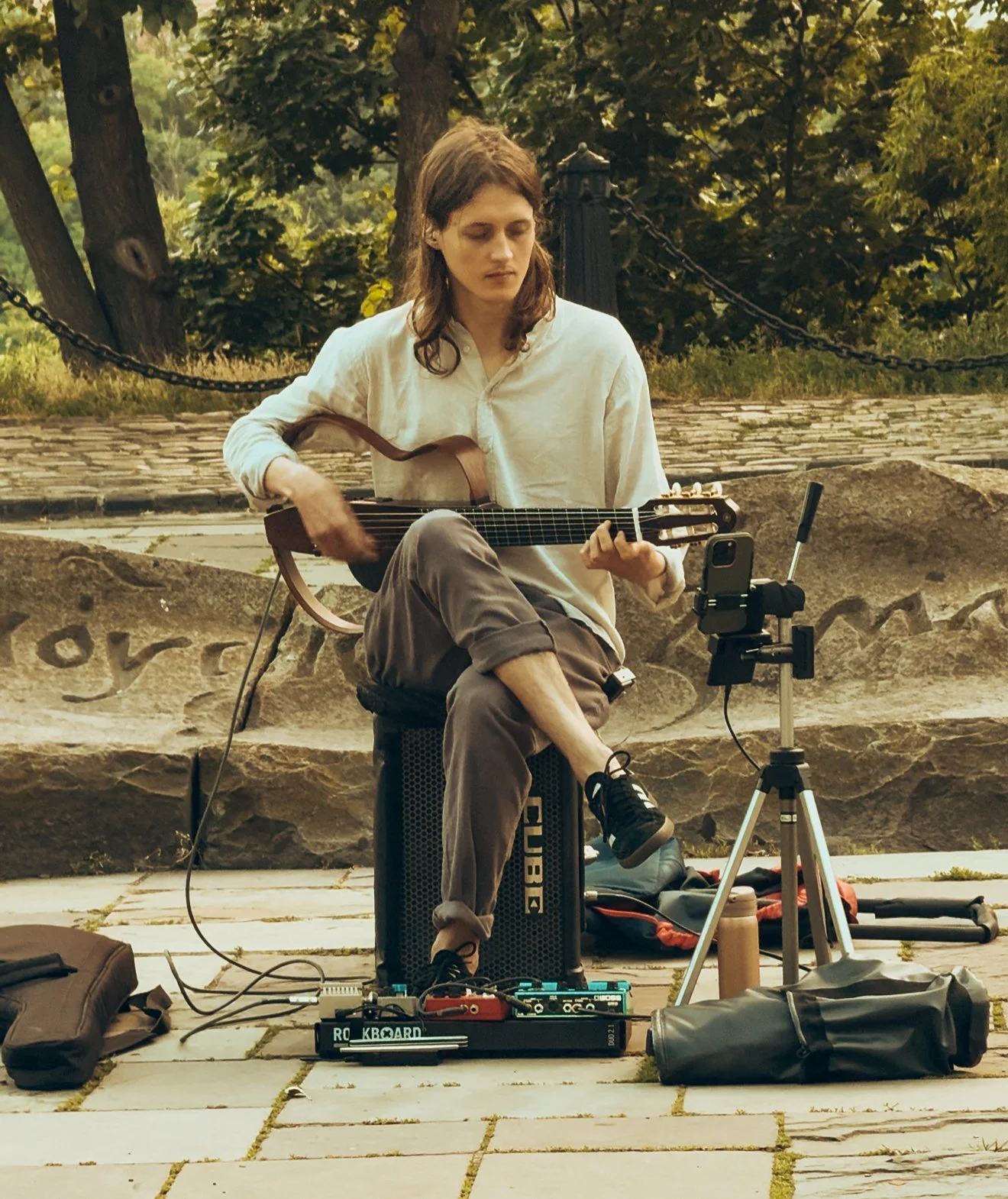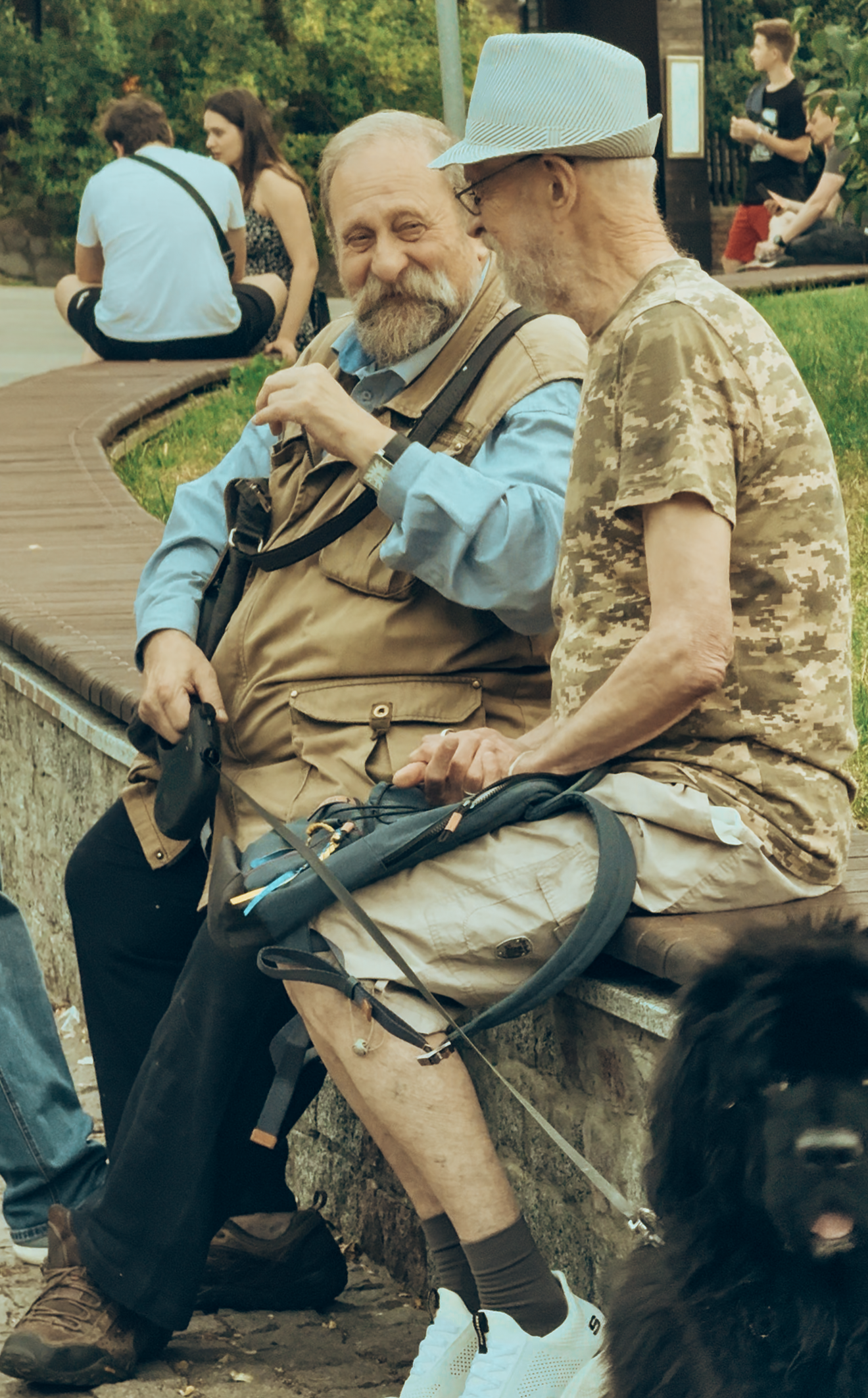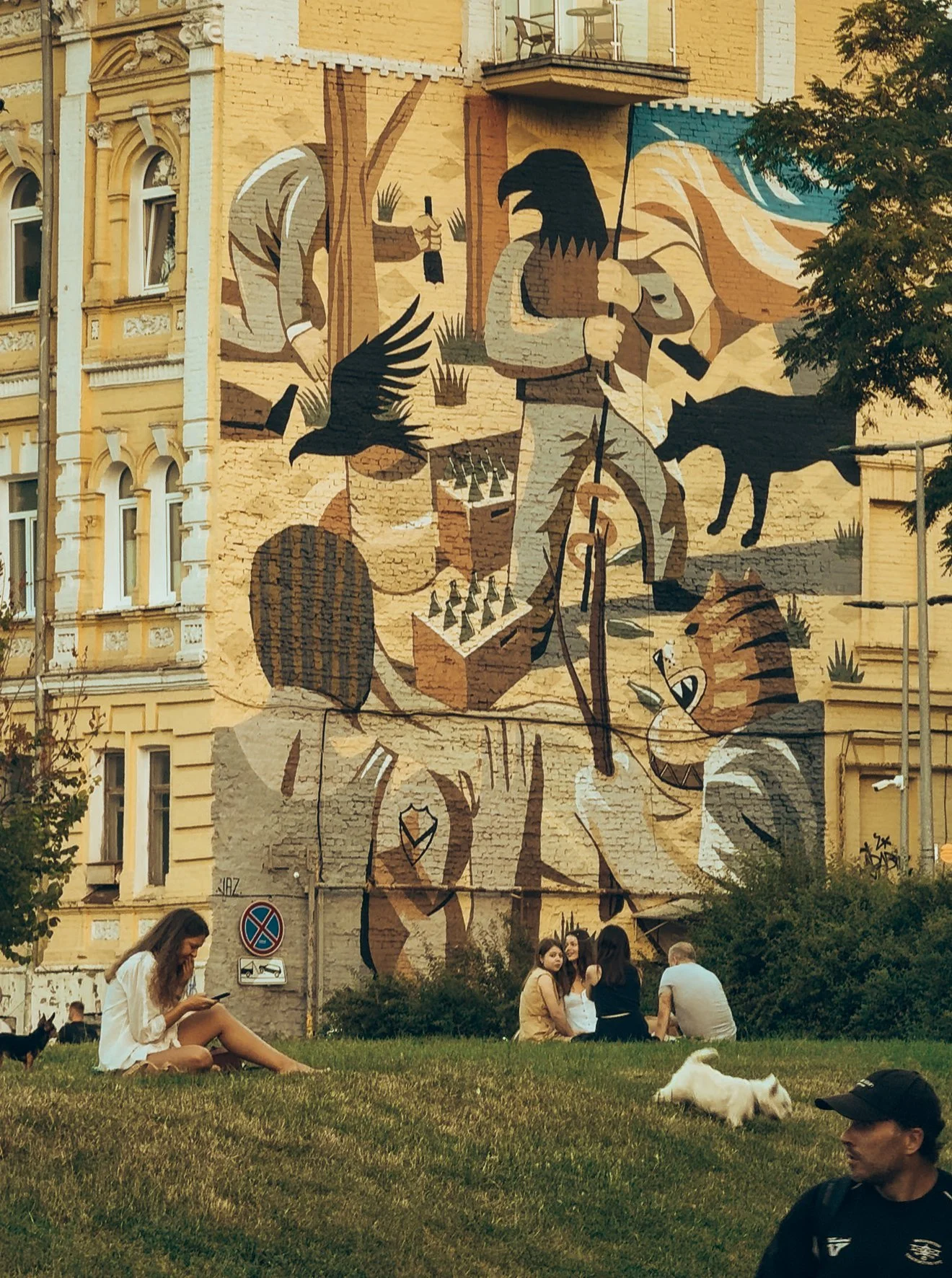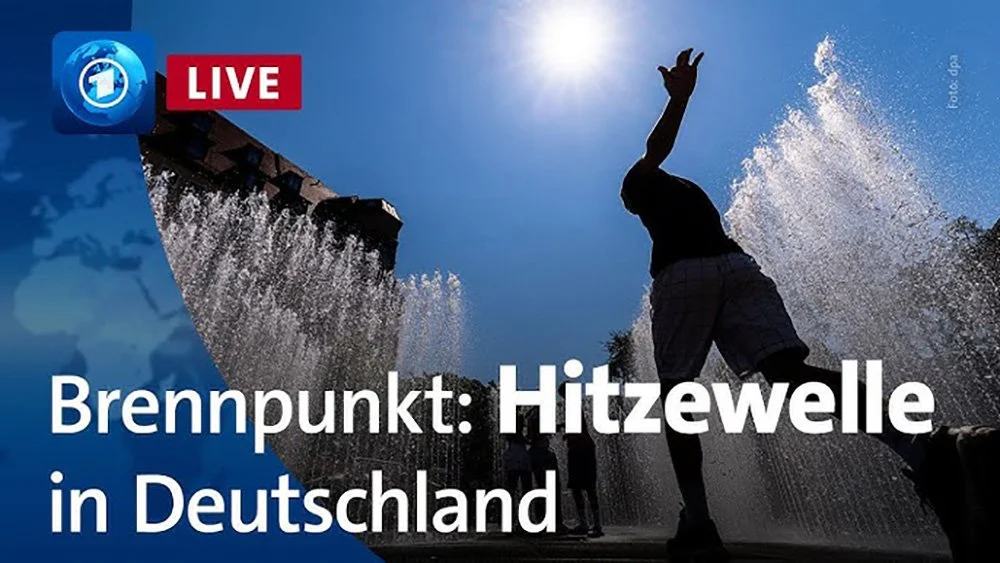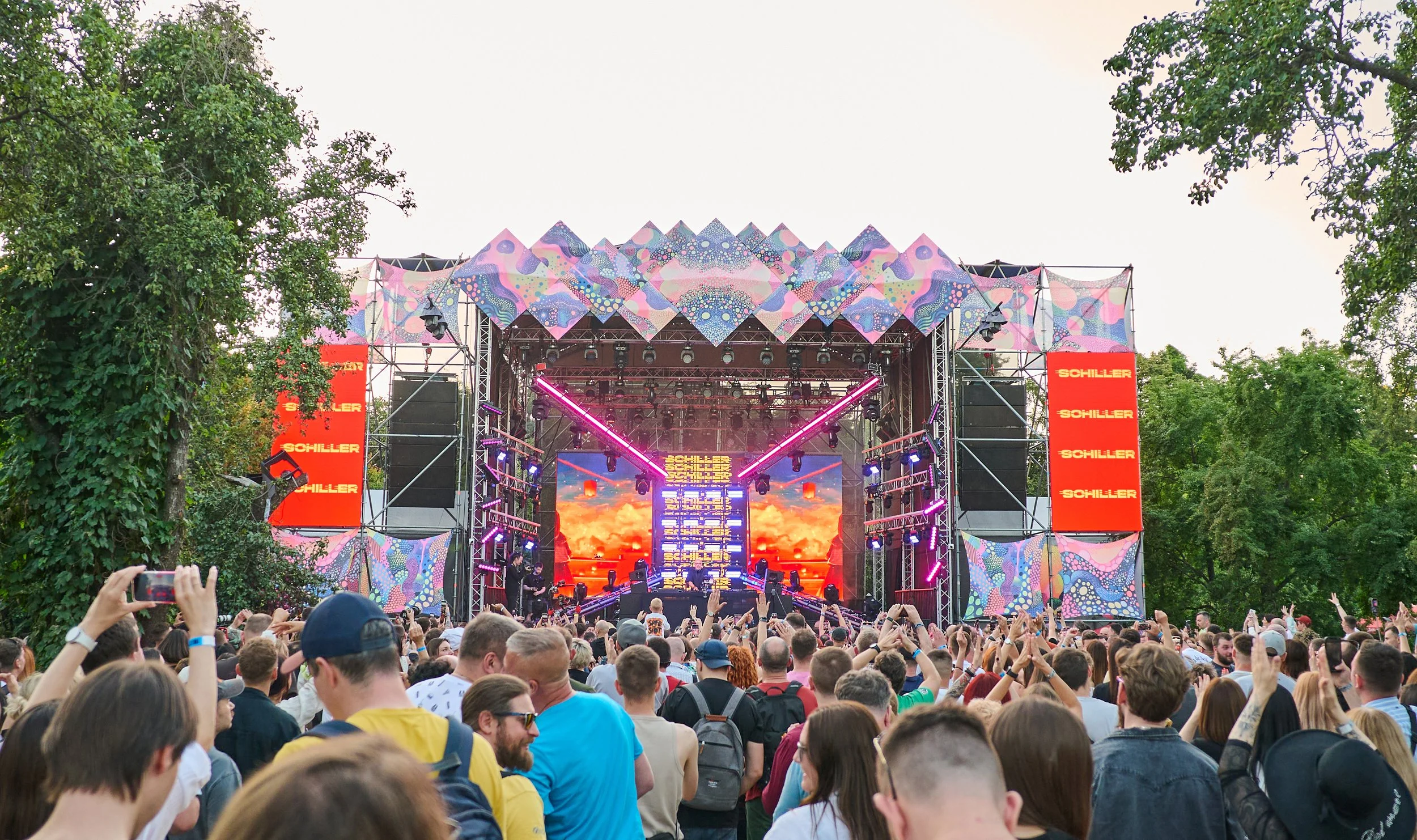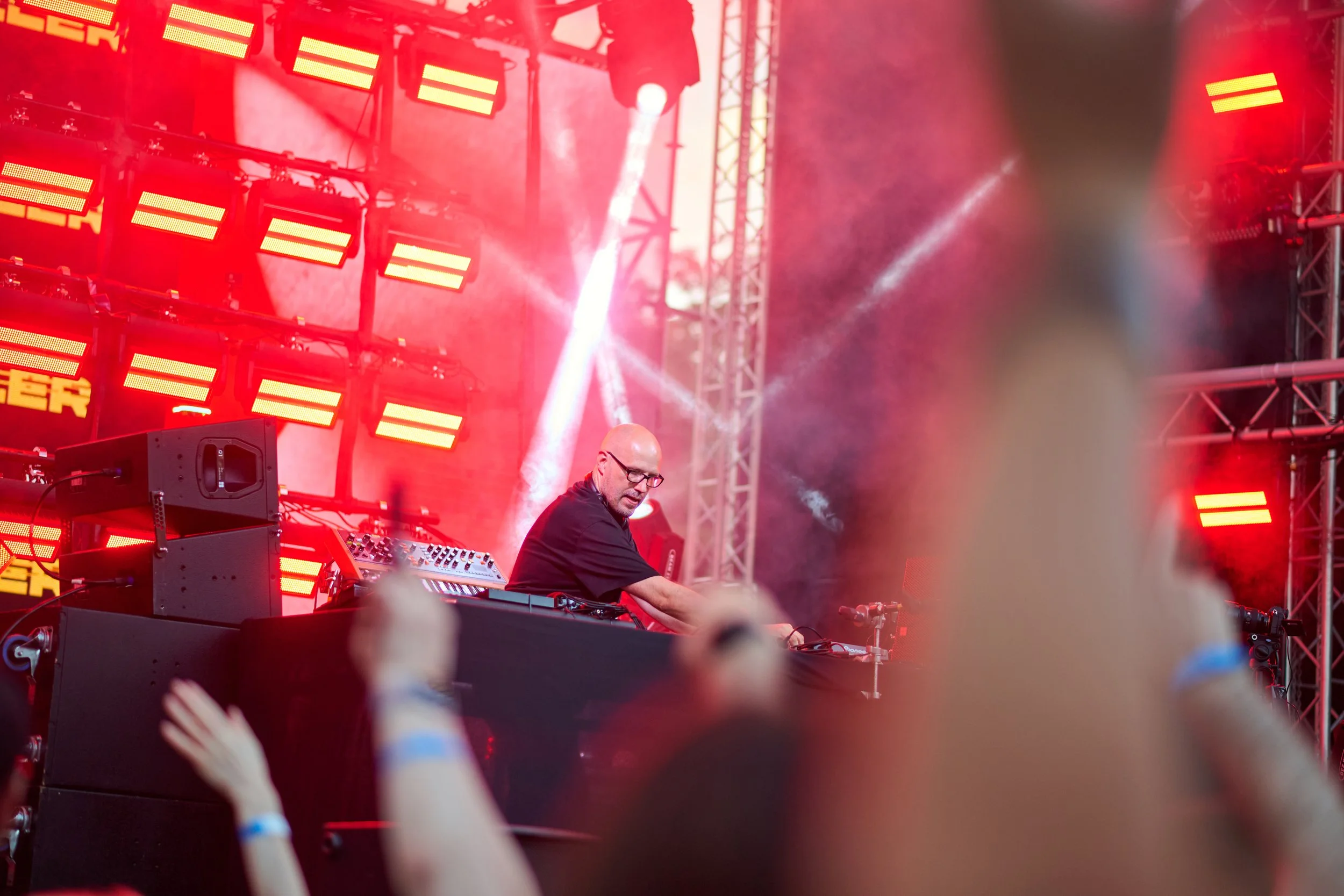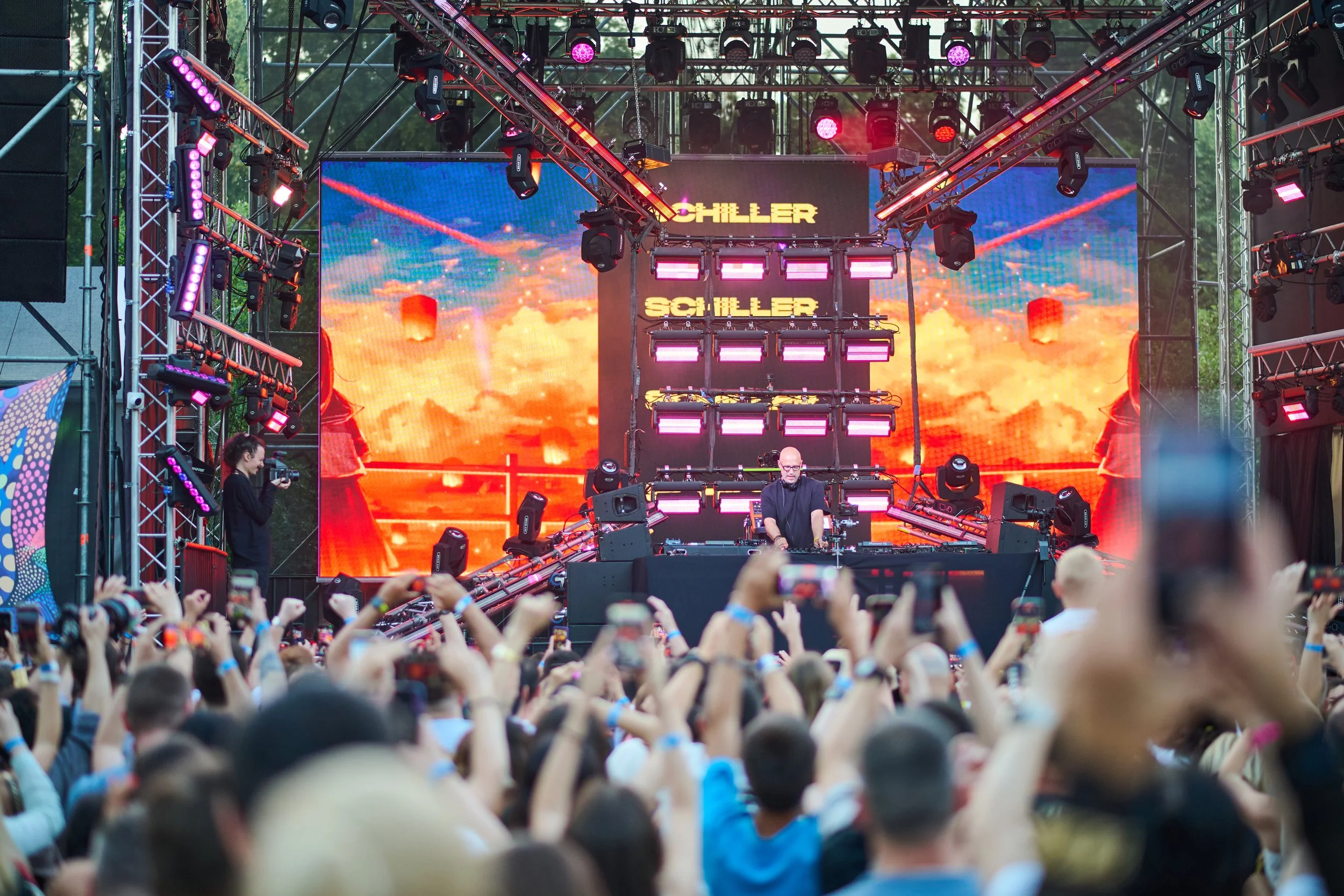Between bombs, stage and bunker
From Berlin To Kyiv
© Google Maps
1,400 kilometres. With enough coffee, that's enough distance for one day. Geneva is closer, Rome barely further away. And yet there is something between here and there that cannot be summarised by numbers alone. It's not just the distance on the map, not just asphalt under the tyres or hours on the train. It is the reality in between - borders, stories, memories. People whose gaze stays in your head longer than many a sight.
1,400 kilometres - that's the distance that seems so easy to bridge on the outside, but leaves traces on the inside. The route may be clear, but the destination remains complex. What awaits you there is not simply an arrival, but a different understanding. And so the journey is not just a movement through space, but also through memory, hope and what lies unspoken between the lines.
Smoke over the City
Friday arrival. First hot summer day. The smoke of the night still hangs over the city - left behind by an hours-long attack by Russia with hundreds of drones and several ballistic missiles. Nevertheless: queues of cars in rush-hour traffic, busy honking horns, people with coffee cups in their hands. Everyday life. Just different.
Life in a state of emergency
The war has inscribed itself into the hours without completely darkening the days. People have settled in. Not in the sense of comfort, but in the sense of necessity. Resilience is not a buzzword here, but a lived attitude.
What surprises me anew on every visit - and moves me deeply - is the people's unbroken will to create. Despite all the uncertainty, despite the sirens, despite the danger: people are designing, building, composing, thinking. You can see it in the conversations, in the language, in the attitude. There is a hunger for expression, a pride in what is one's own, a serious desire not just to exist, but to create something beautiful and unique.
Creativity as the elixir of life
The cafés are full of young people working on ideas. Studios, galleries, start-ups - improvised, yes. But full of energy. It's as if the war is not paralysing, but on the contrary unleashing an engine.
This kind of motivation, this deep striving for the future, for success, for meaning - it has an incredibly inspiring effect on me. You can sense that nobody here is just trying to survive. People here want to live, create, change.
Why? That is The Question
People keep asking me the question - sometimes out loud, sometimes just in an undertone: "Why are you doing this? Why are you travelling to a country at war?" My answer is simple: because I want to see what is really going on. Because I want to understand how people live, think and hope under these circumstances. And because I believe that proximity creates a better picture than distance. Those who have seen with their own eyes, heard with their own ears, felt with their own hands, talk differently. Less about headlines. More about people.
If you look at all this from a distance - from a perspective that is hardly geographically different but psychologically distant - you might be tempted to ask: ‘Is there still a war?’ The answer is simple. Yes. It is war. And that is precisely why there is this silent movement of defiance: against the disappearance of the ordinary, in favour of an existence with meaning, form and joy.
Maidan, July 4th 2025 | Photo: Malisa von Deylen
Joie de vivre in the shadow of the sirens
Perhaps it is a bold statement, but I stand by it: in Ukraine, the will to live, even the joy of life, is evident with an intensity that is often sought in vain in war-free zones.
This joy is not loud, not overexcited, not a cheap consolation - it is concentrated, conscious, grown under pressure. It is fuelled by the clarity that every celebration, every encounter, every chorus sung could also be the last. That is precisely why it is full of meaning. Nothing is wasted here - not the time, not the closeness, not the smile.
Kyiv, July 4th 2025 | Photo: SCHILLER
It is a joie de vivre that is not staged from the outside, but comes from within. Not a flight reflex, but a kind of silent rebellion: against silencing, against freezing. You can feel it in small gestures - in the care with which a coffee is prepared, in the calmness with which someone hangs a picture, in the matter-of-factness with which people care for one another.
Perhaps this is precisely where the greatest strength lies: that the war has not dulled people, but has made them more permeable - for the beautiful, for the true, for the necessary. What sinks into weariness or irony in other countries stands upright here. It is not naive, but resolute. And that is precisely what impresses me so deeply.
Rear-view mirror Germany
„Heatwave” | Source: YouTube
We came from a Germany that has recently suffered a few hot days in the media. Where discussions escalate more quickly than they are resolved, where waves of opinion are like heatwaves. Who said what, and how bad was it? Attitude as currency, outrage as a business model.
A climate of petulance has emerged in which the tone is often louder than the thought behind it. A public sphere in which terms such as ‘democracy’, “freedom” or ‘responsibility’ are used so frequently that they sometimes lose their contours. Where debates are no longer conducted, but evaluated. Where the suspicion of saying the wrong thing or not saying the right thing loud enough always resonates.
At the same time, our own comfort zone is defended like a fortress - as if a differentiated thought could lead to a loss of control. Yet there is so much to observe, to ask, to understand. But that takes time, attention and willingness. And these often seem to get lost in the heat of the moment.
We came from there - and suddenly found ourselves here, in a country that doesn't discuss, but acts. That doesn't theorise, but improvises, organises, perseveres. Not perfect, not without contradictions. But with a clarity that is sobering and admirable at the same time.
Alarm at the Backstage
Source: https://alerts.in.ua/en
Then: "Let's go into the shelter! Now!" Olga, our organiser, is suddenly standing in the backstage area. Not another five minutes, she says. Ballistic missile. No room for doubt. No room for routines.
I hesitate. Actually, I didn't want to go. I had got used to the alarm, to the sirens, to the app that always spits out the same sentence: ‘Don't be careless - your overconfidence is your weakness.’ The first time it scared me. The third time it irritated me. The tenth time, I was just tiredly annoyed. At some point, a strange fatalism sets in - not out of courage, but out of exhaustion.
But Olga insists. As the organiser, she bears the responsibility. And she doesn't ask casually, but insistently. With a mixture of care and determination that I can't resist. So off we go.
We walk across the grounds. 30 degrees, shimmering heat. The ground is sticky. The volleys of anti-aircraft fire in the distance are vaguely reminiscent of New Year's Eve.
Below the Surface
Kyiv, July 5th 2025 | Photo: SCHILLER
In the shelter - a cool cellar beneath the festival site - we sit and stand together with young people, families and children. The WLAN password is on the wall. The sound is quiet. No panic. Just concentration. You know the drill. It's the fourth year.
Drones announce themselves differently than missiles. Slower, tougher, like an unpleasant thought that can't be shaken off. Ballistic missiles are faster. And over quicker - for better or for worse.
WILLKOMMEN IM GLÜCK
Photo: Malisa von Deylen
After thirty minutes, the app gives the all-clear. We walk back across the dusty site, past generators, cables and loudspeaker towers. The audience slowly emerges from the shelters.
And then: music. The show starts. Over 2,500 people gather to share a moment that is more than just entertainment. The sun is low. Golden hour. We let ourselves go, become light, together.
It's just after seven.
The sun is low as the first notes ring out. A golden light lies over the grounds. I look into faces that don't just listen, but absorb, memorise, feel. People who know how fleeting a moment can be - and who keep it with them for that very reason.
I don't think about anything else while I'm playing. No escape plan, no fear - just this one shared moment. The music carries us into the night. In these two and a half hours, something is created that seems indestructible: a space of sound, closeness, courage.
Then the last track sounds. Shortly afterwards, sirens again, that rumbling on the horizon that can't decide whether it's a thunderstorm or an attack. And yet: this evening remains. Because it is memorable - not despite the threat, but perhaps precisely because of it. It remains in the memory of those who came to not give up. Who danced and celebrated life. Who are there. Simply there.
My first and last song tonight: ‘Welcome to happiness.’
Photo: SCHILLER



